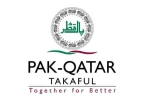The Ministry of Information Technology and Telecommunication (MoITT) has announced plans to conduct a third-party assessment of the federal government’s cashless economy initiative.
MoITT has invited applications from firms to conduct an independent review and audit of the initiative’s design, implementation, impact, and governance mechanisms through an international competitive bidding process.
According to the document, the Government of Pakistan has launched an ambitious national program to transition from a cash-based system to a fully digital and cashless economy. The initiative aims to promote transparency, enhance public service delivery, reduce transaction leakages, and increase financial inclusion.
The plan also includes the creation of a Digital Public Infrastructure (DPI), enabling citizens to make digital payments through the RAAST platform and access government services through a unified digital identity system.
The RFP outlines that the consultancy firm will be responsible for a detailed evaluation of the initiative’s strategy, progress, and efficiency. The firm will assess whether the government’s approach aligns with its stated goals and recommend course corrections where necessary. The assignment also includes reviewing institutional frameworks, identifying implementation challenges, and providing recommendations for policy and governance improvements.
The cashless economy initiative involves enabling merchants nationwide to accept and process digital payments by introducing QR codes, lowering transaction fees, and reducing duties on payment equipment. It also aims to accelerate fiber optic network expansion by reducing Right-of-Way (ROW) charges to zero, a measure already adopted by entities such as the Pakistan Railways, National Highway Authority (NHA), and Capital Development Authority (CDA).
According to the document, the Prime Minister is personally overseeing the progress of the cashless economy initiative through regular review meetings. A high-level steering committee, working under his directives, has been formed to monitor progress. The committee operates through three sub-committees chaired by the Governor of the State Bank of Pakistan, the Federal Minister for IT, and the Federal Secretary of the Finance Division, respectively.
The RFP also highlights that the selected consultancy will produce several key deliverables within defined timelines. The Inception Report will be submitted within one week of commencement to outline the work plan. The Initial Assessment Report, due within six weeks, will evaluate the current status and identify gaps in the initiative.
The Interim Recommendation Report, to be completed within four weeks after the initial assessment, will provide recommendations for improvement and course correction. The Second Assessment Report, to be delivered eight weeks later, will review the implementation of recommendations. Finally, the Final Report, due five weeks after the second assessment, will summarize expected and actual outcomes along with recommendations for sustainability.
Proposals will be evaluated under a Quality and Cost-Based Selection (QCBS) method, where 80 percent weightage will be given to technical proposals and 20 percent to financial bids. Only firms scoring at least 70 points in the technical evaluation will be eligible for financial assessment. The firm achieving the highest combined score will be recommended for the award, subject to final approval and contract negotiations.
The Ministry of IT and Telecommunication will supervise the entire process, while the Government of Pakistan will fund the assignment. The RFP emphasizes strict confidentiality, declaring that all data and reports will remain government property. Firms are also required to disclose any potential conflicts of interest, as failure to do so could lead to disqualification.






